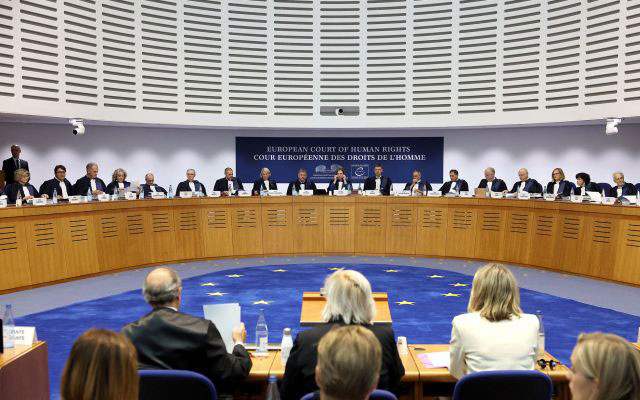
4 conclusions of the ECHR in the case of Sergiyenko v. Ukraine

Ukraine must pay lawyer Oleksandr Sergiyenko EUR 15 thousand in compensation for violations of his rights by officials of the National Anti-Corruption Bureau of Ukraine during the investigation of the case against his client.
The relevant judgment of the European Court of Human Rights of November 7, 2024 in the case of Sergiyenko v. Ukraine (application No. 72678/16) was published on the court's website.
In June 2016, the lawyer was arrested and placed in custody as a preventive measure. In September, the court changed the measure of restraint to round-the-clock house arrest. However, the next morning, when O. Sergiyenko was being taken home from the pre-trial detention center, he was re-arrested by the NABU on new suspicion.
Three days later, the court legalized these actions (ruling to detain the man as part of a new investigation). The lawyer immediately appealed the decision, but had to wait almost a month for the appeal. In the end, the appeal was rejected.
During his re-arrest, O. Sergiyenko suffered bruises on his chest, arms and nose. These injuries were recorded during his return to the pre-trial detention center. The court ordered an investigation into the alleged ill-treatment, and the NABU even opened proceedings. However, law enforcement officers found that the lawyer behaved aggressively during his detention, shouted, and refused to comply with the investigator's «requests». Therefore, during the conflict, the officers only responded to the lawyer's resistance by restricting the movement of his arms and legs and handcuffing him. The investigation ended with the NABU officers' actions being recognized as lawful, and it was ruled that there was no crime.
The appeal in the Ukrainian court was unsuccessful, so O. Sergiyenko appealed to the ECHR.
He referred to Article 3 of the Convention for the Protection of Human Rights and Fundamental Freedoms and claimed that he had been ill-treated by law enforcement officers during his arrest, and that the investigation into the incident was ineffective. In addition, the complaint concerned the excessive length of time it took to consider his appeal against the decision to detain him in custody.
The Court confirmed the violation of these rights guaranteed by the Convention, making the following conclusions:
1. When a person submits a substantiated complaint that he or she has been subjected to ill-treatment by the police or other similar public authorities, Article 3 of the Convention provides for the obligation of the state to conduct an effective official investigation.
Such an investigation must identify those responsible for the incident and ensure that they are punished. It must also meet the requirements of promptness, thoroughness, independence and public transparency.
2. The investigation of the incident with O. Sergiyenko was conducted by the same body (NABU) that investigated the case against him. This does not meet the requirements of independence for an effective investigation. Therefore, the ECHR recognized that the investigation of the applicant's complaints of ill-treatment did not have the necessary element of independence to meet the requirements of Article 3 of the Convention.
3. A person under the control of law enforcement officers was injured. This created an obligation on the domestic authorities to conduct an effective and thorough investigation aimed at establishing the origin of the injuries and identifying and punishing those responsible if the allegations of ill-treatment were substantiated.
Although the government referred to the decision of the NABU investigator to close the proceedings on the alleged ill-treatment, the court was not provided with copies of the relevant decisions. Nor did the representative of Ukraine explain their absence. From this, the ECHR concluded that the government had not refuted the applicant's claim that he had been ill-treated by law enforcement officers.
This «presumption of guilt» was enough for the ECHR to classify the applicant's ill-treatment as inhuman and degrading.
4. The ECHR also considered the 28 days for consideration of the appeal to be an excessively long period. It took into account the postponement of the hearing due to the fact that the materials were not transferred from the district court in a hurry, as well as the lack of explanations from the government. Thus, there was a violation of Article 5 of the Convention.
© 2026 Unba.org.ua Всі права захищені
"Національна Асоціація Адвокатів України". Передрук та інше використання матеріалів, що розміщені на даному веб-сайті дозволяється за умови посилання на джерело. Інтернет-видання та засоби масової інформації можуть використовувати матеріали сайту, розміщувати відео з офіційного веб-сайту Національної Асоціації Адвокатів України на власних веб-сторінках, за умови гіперпосилання на офіційний веб-сайт Національної Асоціації Адвокатів України. Заборонено передрук та використання матеріалів, у яких міститься посилання на інші інтернет-видання та засоби масової інформації. Матеріали позначені міткою "Реклама", публікуються на правах реклами.